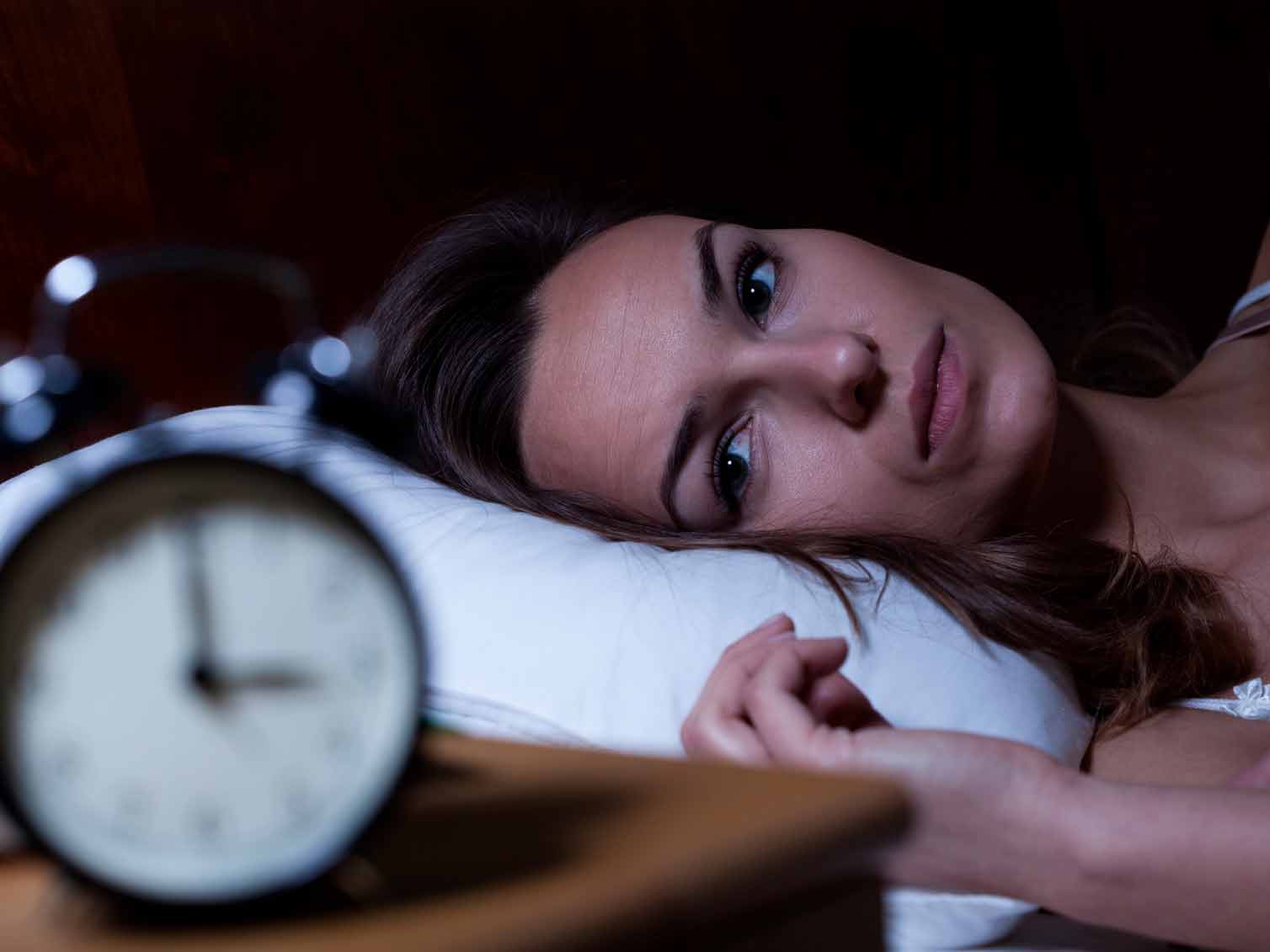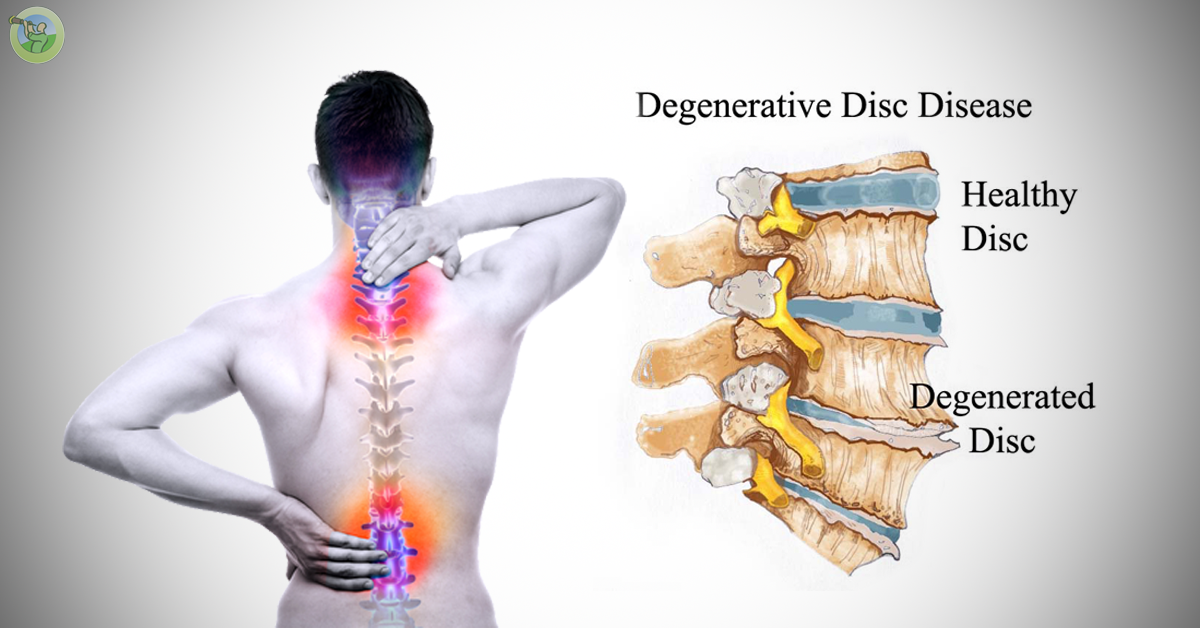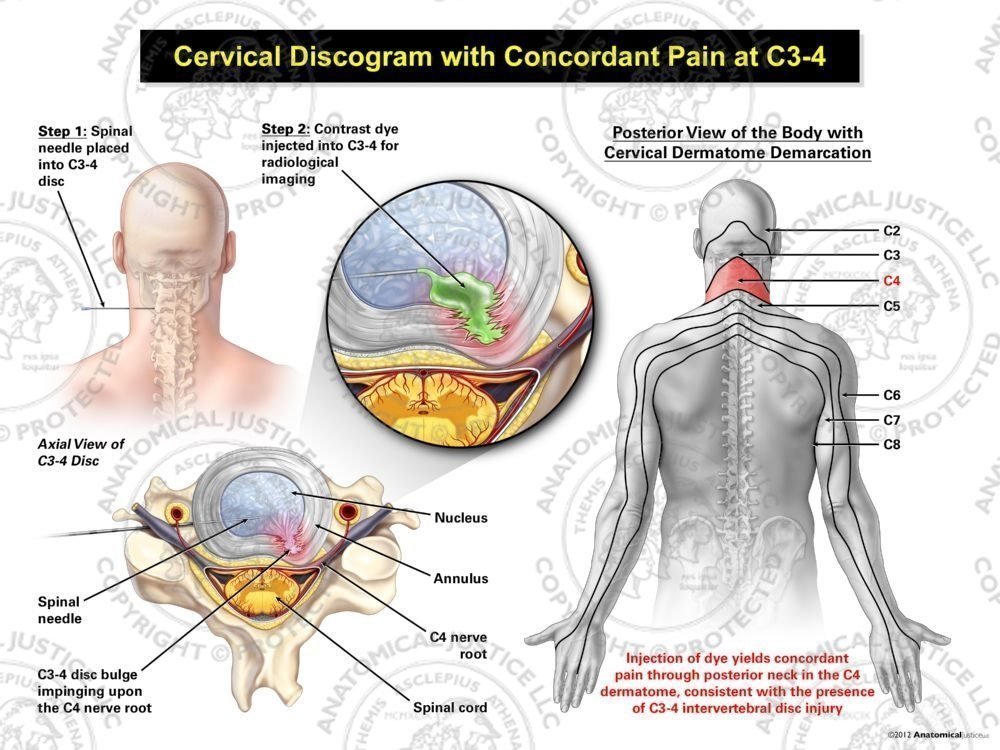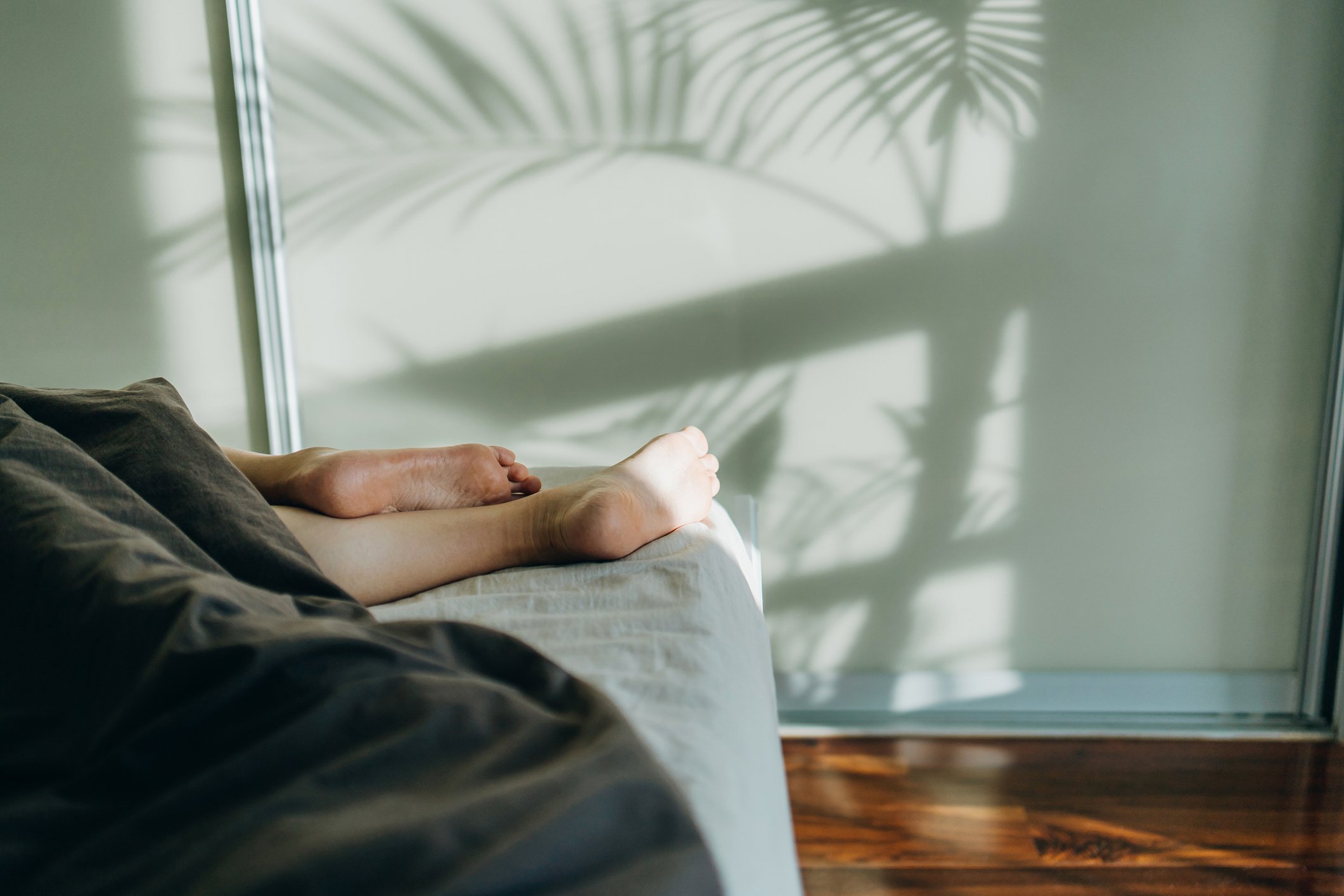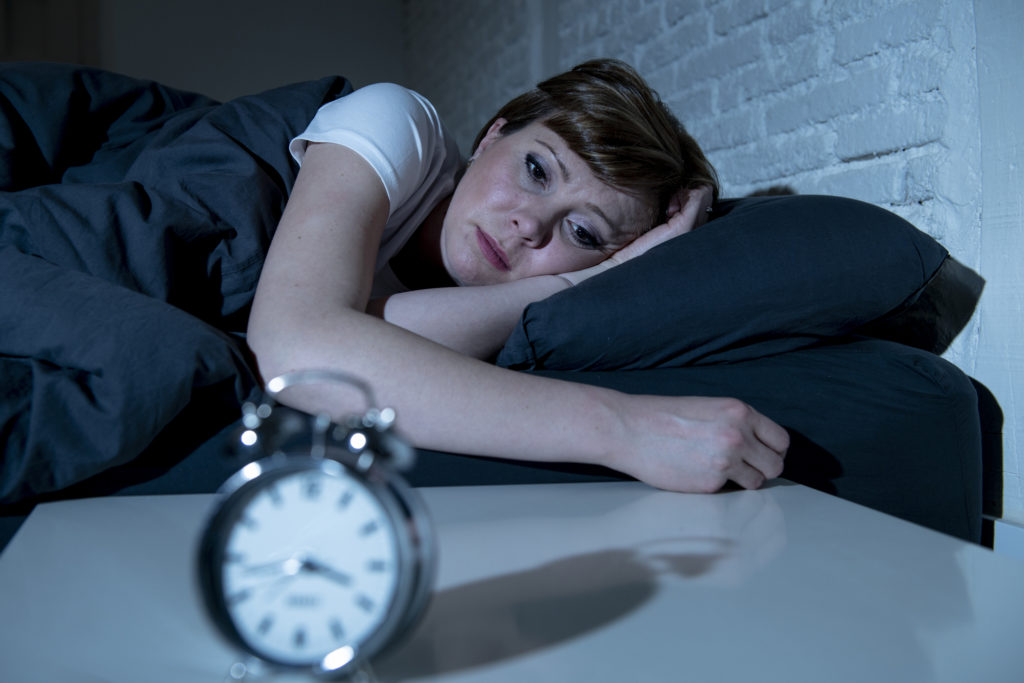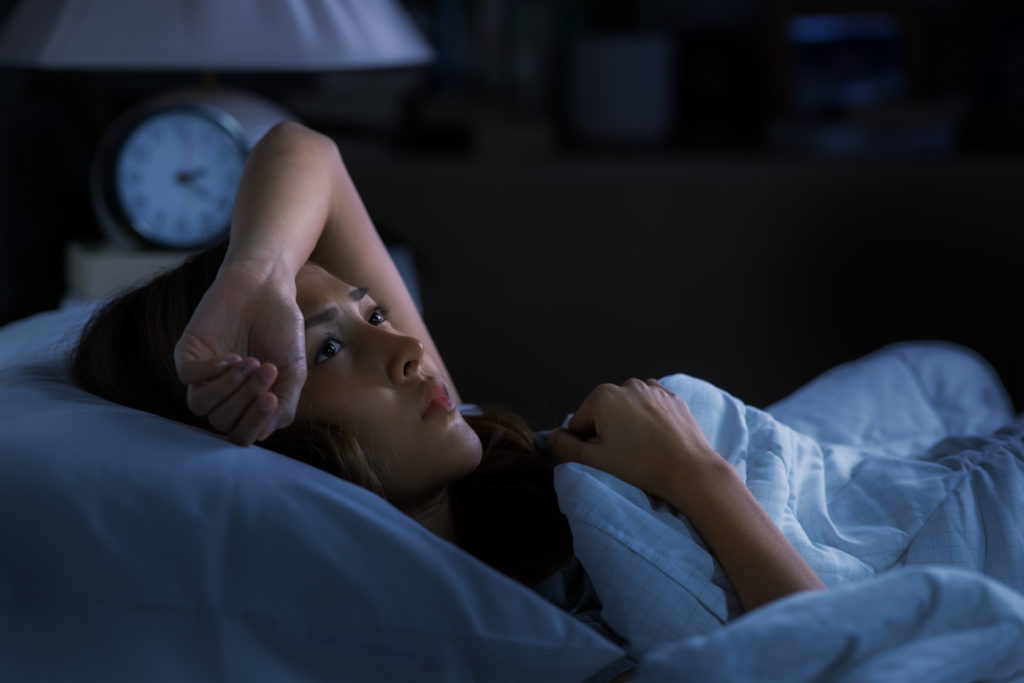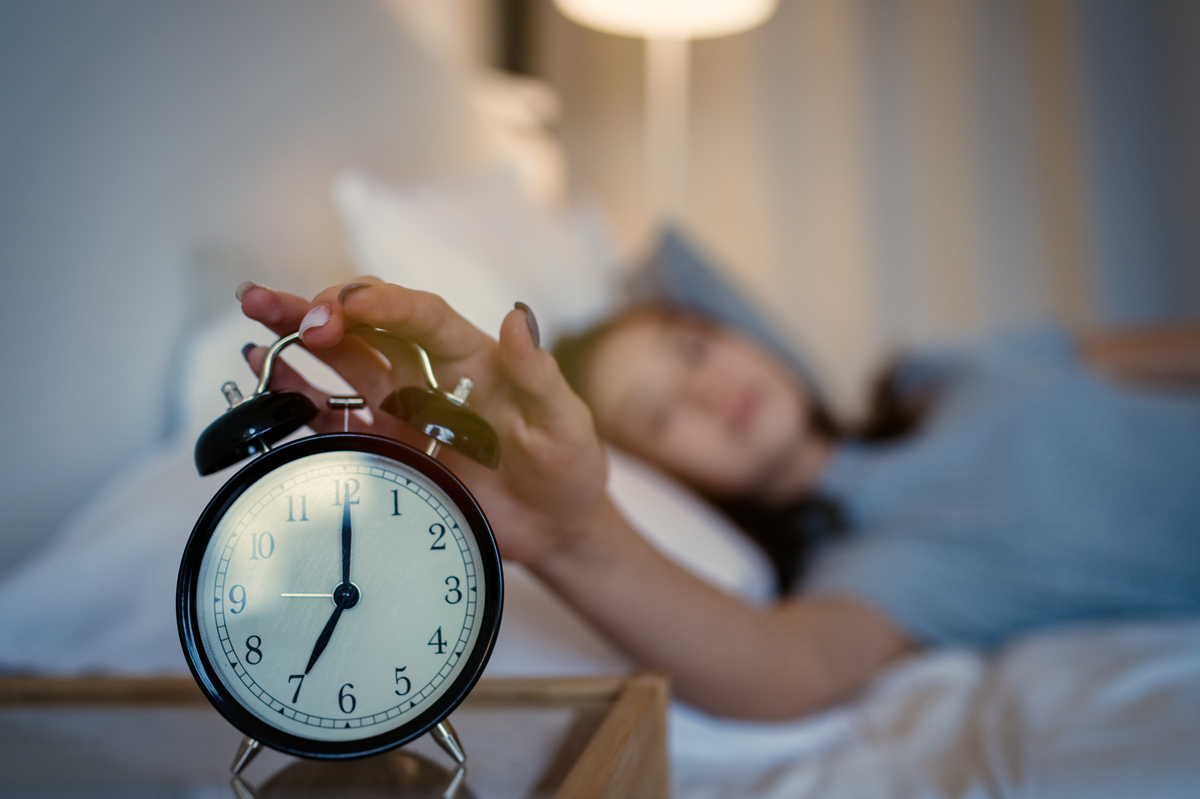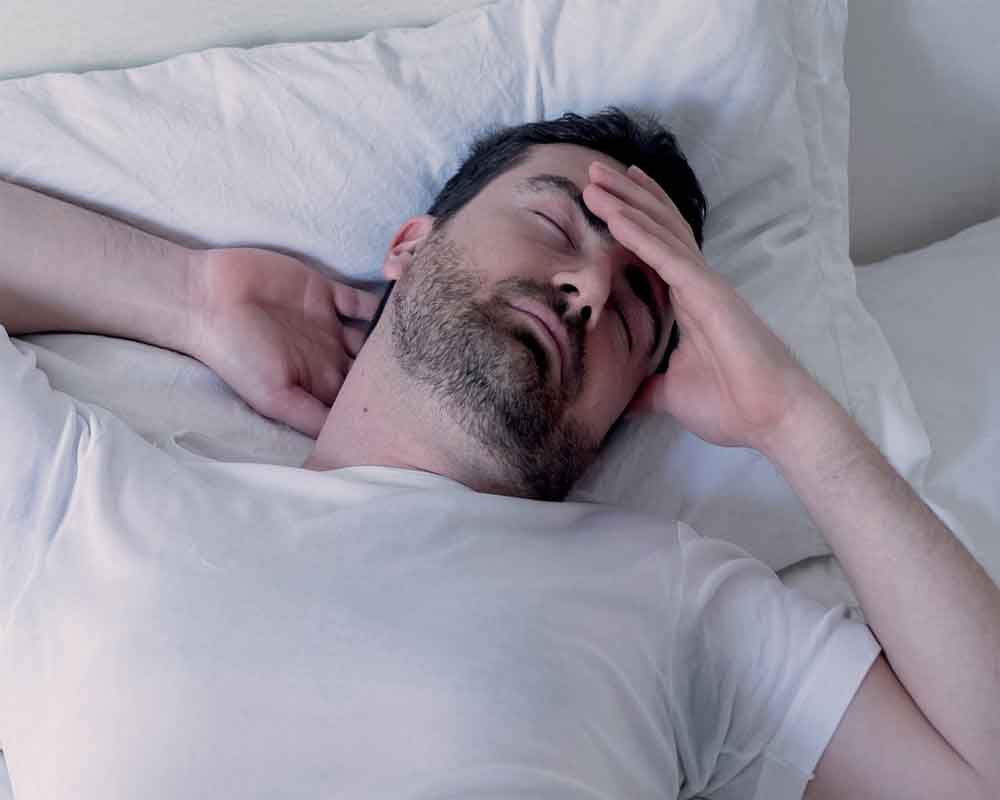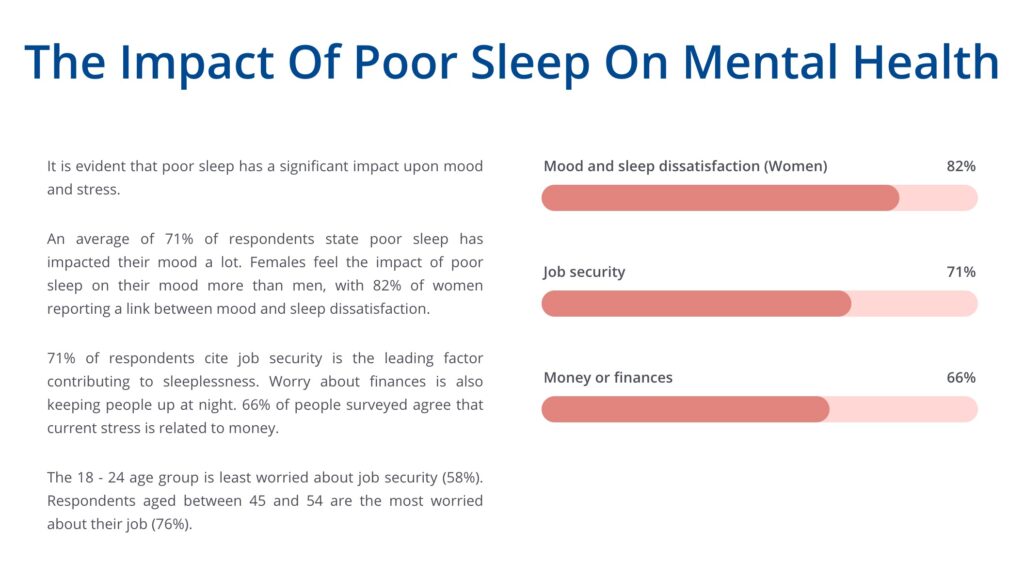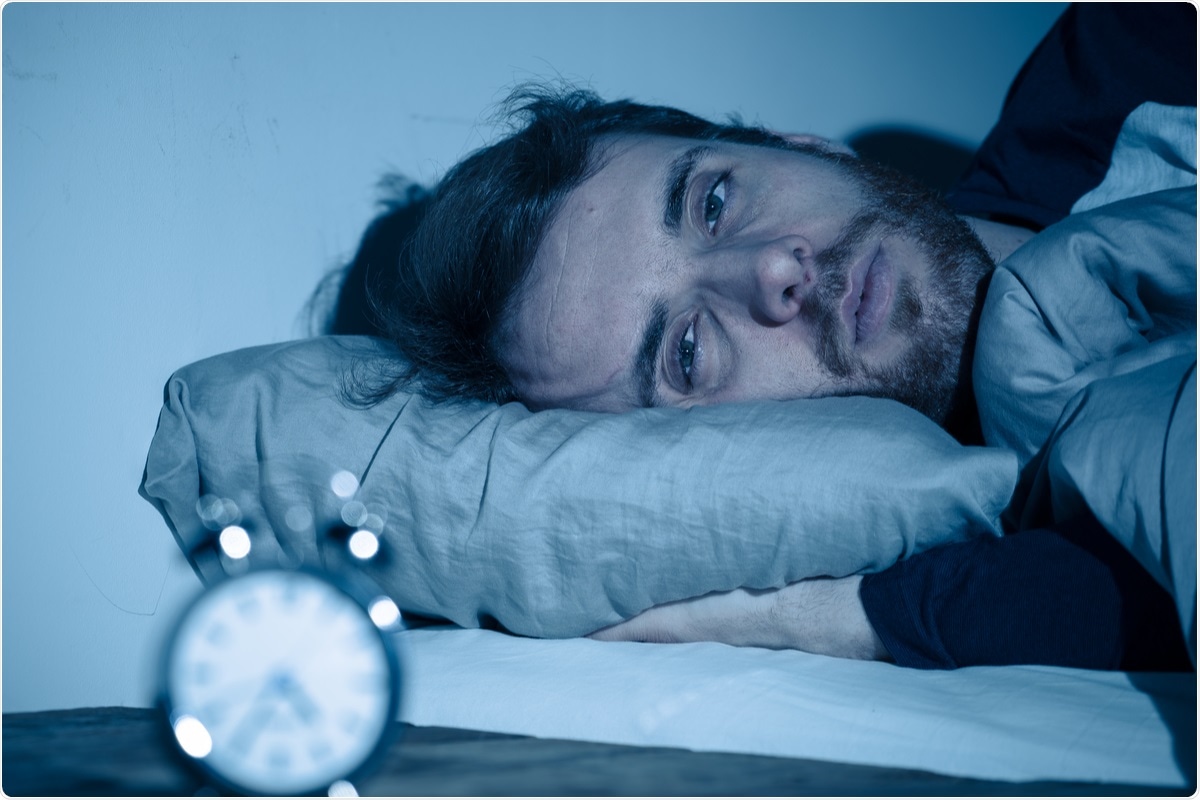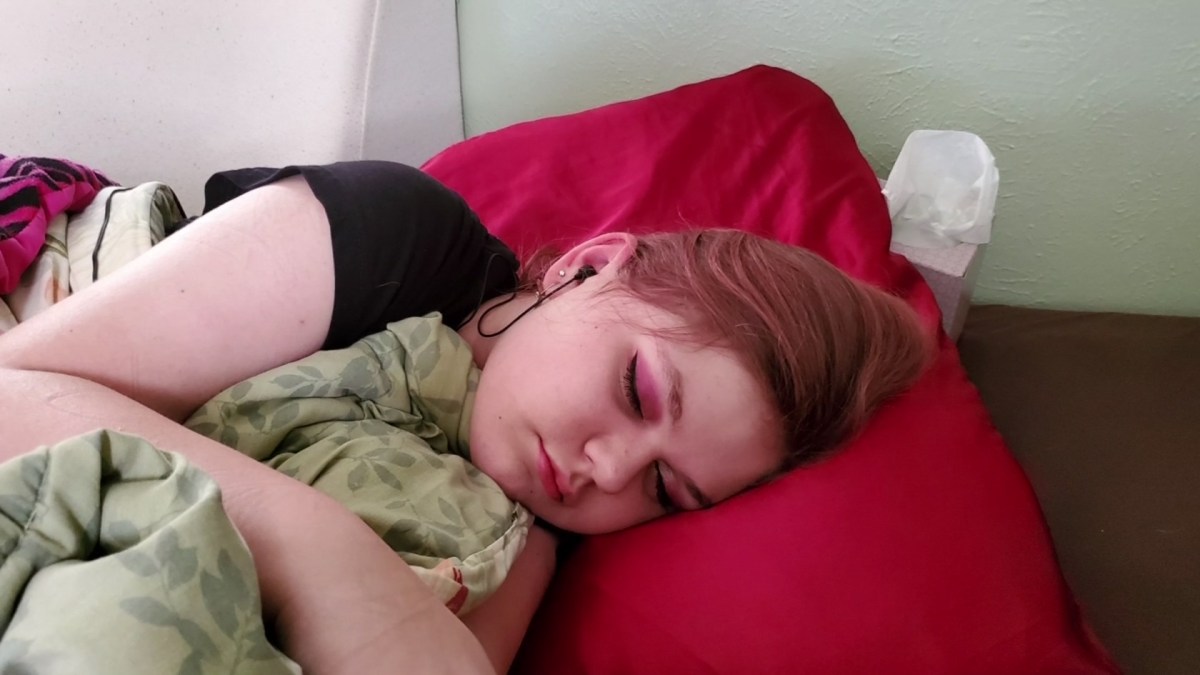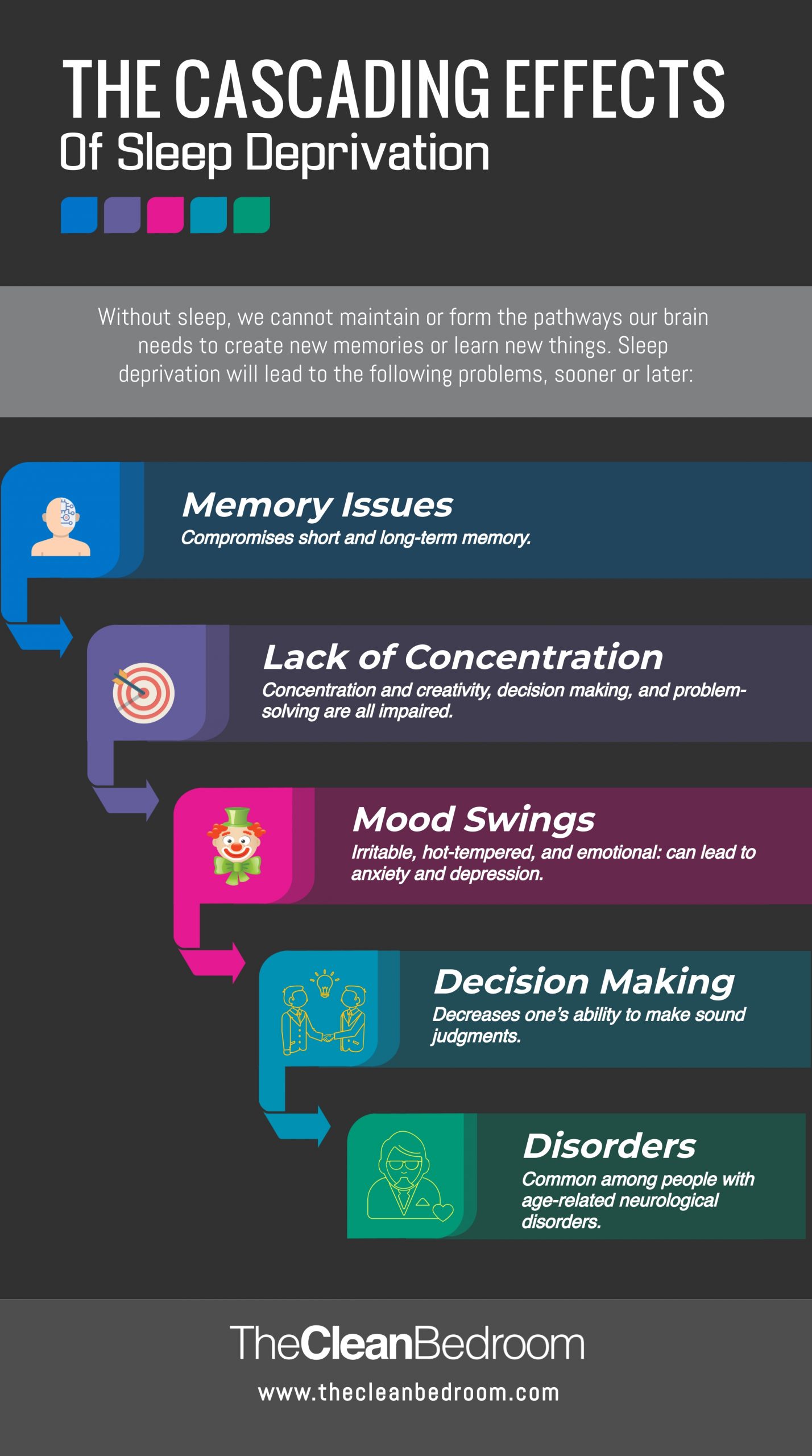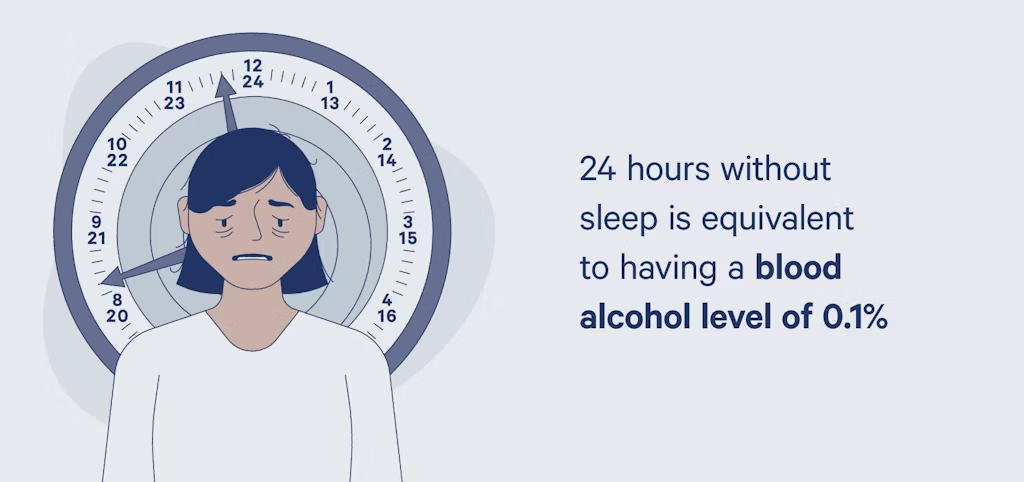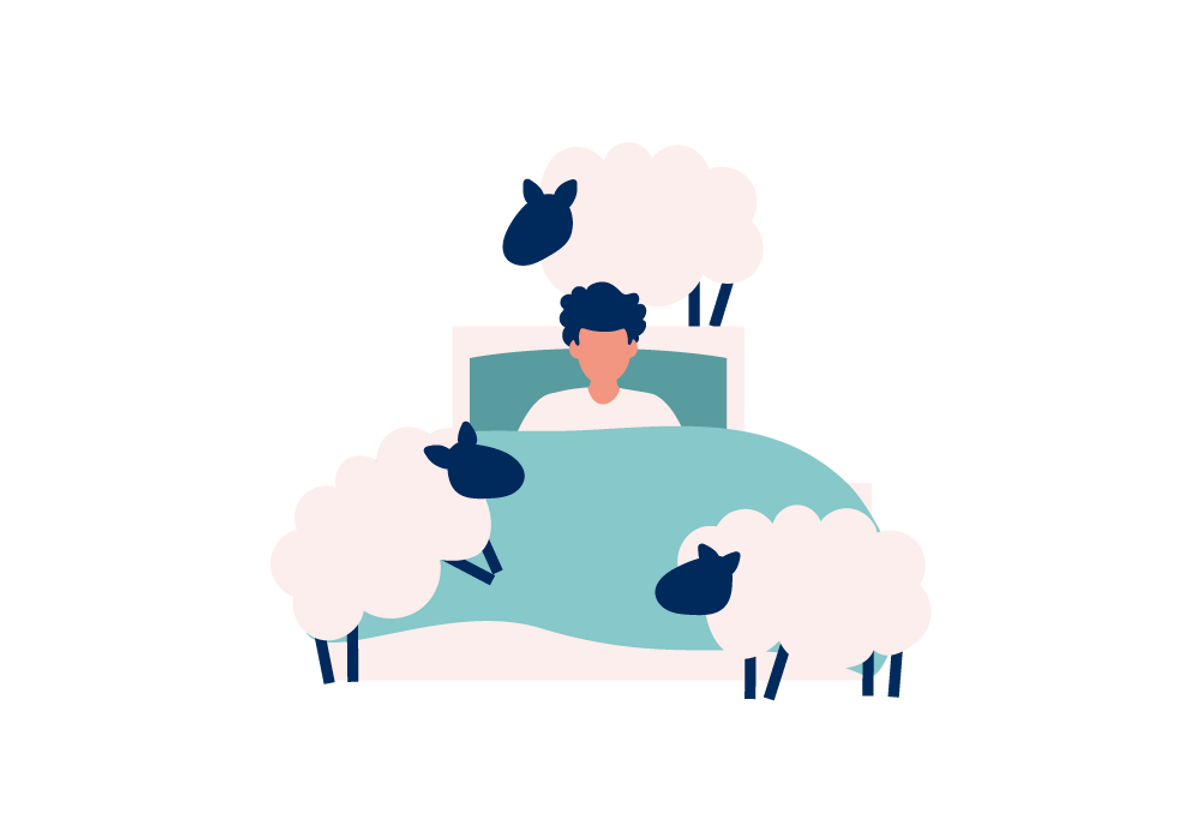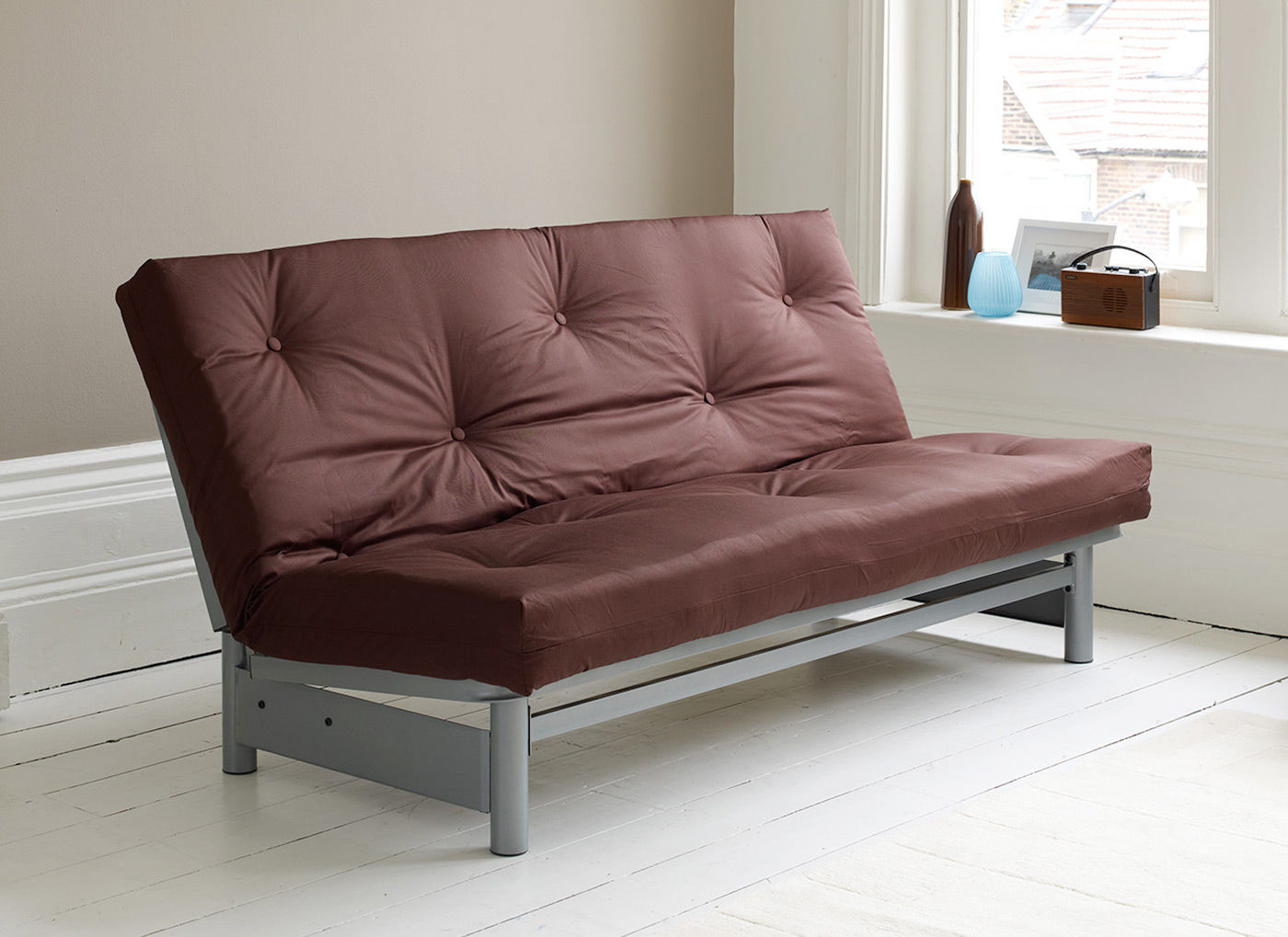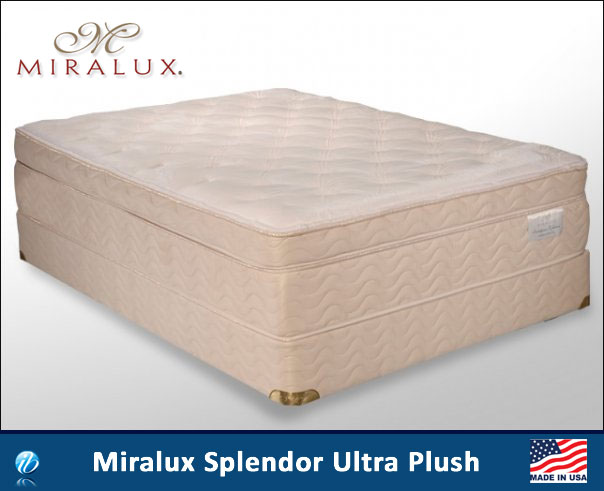1. Insomnia
A bad mattress can be a major culprit behind the inability to fall asleep or stay asleep. Insomnia is a common sleep disorder that affects millions of people worldwide. It is characterized by difficulty falling asleep, staying asleep, or both. While there can be various reasons for insomnia, a bad mattress can be a significant contributing factor. A poor quality mattress can cause discomfort, pain, and restlessness, making it challenging to achieve a restful night's sleep.
2. Back pain
Waking up with back pain is a common complaint among people with a bad mattress. A mattress that does not provide proper support to the spine can lead to back pain and discomfort. When the body is not in a neutral position while sleeping, it can put a strain on the back muscles, causing pain and stiffness. This can significantly impact the quality of sleep and lead to sleep problems.
3. Neck pain
Just like back pain, a bad mattress can also cause neck pain and stiffness. When a mattress does not provide adequate support to the neck and head, it can lead to misalignment of the spine, resulting in neck pain. This can make it challenging to find a comfortable sleeping position and can cause restless sleep, ultimately leading to sleep problems.
4. Restless sleep
A bad mattress can make it difficult to achieve a deep and restful sleep. When the body is not properly supported, it can lead to tossing and turning, constant readjustment, and an overall feeling of discomfort. This can result in a restless sleep, where the individual may wake up multiple times throughout the night, impacting the quality of sleep and causing sleep problems.
5. Tossing and turning
Constantly tossing and turning during the night can be a sign of a bad mattress. When a mattress does not provide adequate support or comfort, the body may naturally try to find a more comfortable position, leading to constant movement. This can be disruptive to sleep and can cause sleep problems such as fatigue and sleep deprivation.
6. Poor sleep quality
A bad mattress can significantly impact the overall quality of sleep. When the body is not properly supported, it can lead to discomfort, pain, and restlessness, making it challenging to achieve a deep and restful sleep. Poor sleep quality can result in sleep problems such as fatigue, irritability, and difficulty concentrating during the day.
7. Fatigue
Sleeping on a bad mattress can leave you feeling tired and fatigued even after a full night's rest. This is because the body is not able to fully relax and rejuvenate during sleep when it is not properly supported. Fatigue can lead to a host of other health issues, including difficulty focusing, mood swings, and a weakened immune system.
8. Sleep deprivation
A bad mattress can cause sleep deprivation, which occurs when an individual consistently does not get enough sleep. This can be due to difficulty falling asleep, staying asleep, or both. Sleep deprivation can have serious consequences, including an increased risk of developing chronic health conditions, such as heart disease and diabetes, and can also impact cognitive function and emotional well-being.
9. Sore muscles
Sleeping on a bad mattress can result in sore muscles and stiffness. When the body is not properly supported, it can cause strain on the muscles, leading to pain and discomfort. This can be particularly problematic for individuals who already have existing muscle or joint issues, making it difficult for them to get a good night's rest.
10. Difficulty falling asleep
A bad mattress can make it difficult to fall asleep. When the body is not comfortable and properly supported, it can be challenging to relax and drift off into a deep sleep. This can lead to tossing and turning, restlessness, and ultimately difficulty falling asleep. This can significantly impact the quality of sleep and lead to sleep problems such as fatigue and irritability.
In conclusion, a bad mattress can indeed cause sleep problems. It is essential to invest in a high-quality mattress that provides adequate support and comfort to ensure a good night's sleep. If you are experiencing any of the above sleep problems, it may be time to consider replacing your mattress and investing in your overall health and well-being.
The Link Between a Bad Mattress and Sleep Problems: Exploring the Connection

Understanding the Impact of a Poor Mattress on Your Sleep Quality
 We all know the feeling of waking up after a restless night's sleep, feeling groggy and exhausted despite getting enough hours of shut-eye. We often blame stress, caffeine, or technology for our sleep troubles, but have you ever considered that your mattress could be the culprit?
A bad mattress can indeed cause sleep problems
, and its impact on our sleep quality should not be underestimated. Our mattress is the foundation of our sleep environment and plays a crucial role in helping us achieve a good night's rest.
A poor mattress can lead to a host of sleep problems
, ranging from minor discomfort to chronic issues that can significantly affect our health and well-being.
We all know the feeling of waking up after a restless night's sleep, feeling groggy and exhausted despite getting enough hours of shut-eye. We often blame stress, caffeine, or technology for our sleep troubles, but have you ever considered that your mattress could be the culprit?
A bad mattress can indeed cause sleep problems
, and its impact on our sleep quality should not be underestimated. Our mattress is the foundation of our sleep environment and plays a crucial role in helping us achieve a good night's rest.
A poor mattress can lead to a host of sleep problems
, ranging from minor discomfort to chronic issues that can significantly affect our health and well-being.
The Science Behind Sleep and Mattresses
 To understand how a bad mattress can cause sleep problems, we need to delve into the science of sleep. Our bodies undergo different stages of sleep throughout the night, from light sleep to deep sleep and REM sleep.
During deep sleep, our muscles relax, and our body repairs itself
, while during REM sleep, our brain is active, and we experience dreaming.
A bad mattress can disrupt these sleep stages and prevent us from getting the quality sleep we need
. An uncomfortable or unsupportive mattress can cause us to toss and turn, leading to frequent awakenings and disrupting the natural sleep cycle. This can result in
fatigue, irritability, and difficulty concentrating
the next day.
To understand how a bad mattress can cause sleep problems, we need to delve into the science of sleep. Our bodies undergo different stages of sleep throughout the night, from light sleep to deep sleep and REM sleep.
During deep sleep, our muscles relax, and our body repairs itself
, while during REM sleep, our brain is active, and we experience dreaming.
A bad mattress can disrupt these sleep stages and prevent us from getting the quality sleep we need
. An uncomfortable or unsupportive mattress can cause us to toss and turn, leading to frequent awakenings and disrupting the natural sleep cycle. This can result in
fatigue, irritability, and difficulty concentrating
the next day.
The Negative Effects of a Bad Mattress on Our Health
 In addition to causing sleep problems, a bad mattress can also have
long-term negative effects on our health
. Over time, sleeping on a poor mattress can lead to chronic back pain, stiffness, and even
spinal misalignment
. This can affect our daily activities and overall quality of life.
Moreover, inadequate sleep has been linked to
various health issues
, including obesity, heart disease, and diabetes. Therefore,
investing in a good mattress is vital for both our physical and mental well-being
.
In addition to causing sleep problems, a bad mattress can also have
long-term negative effects on our health
. Over time, sleeping on a poor mattress can lead to chronic back pain, stiffness, and even
spinal misalignment
. This can affect our daily activities and overall quality of life.
Moreover, inadequate sleep has been linked to
various health issues
, including obesity, heart disease, and diabetes. Therefore,
investing in a good mattress is vital for both our physical and mental well-being
.
Choosing the Right Mattress for Quality Sleep
 Now that we understand the impact of a bad mattress on our sleep, it's essential to know how to choose the right mattress for quality sleep.
When shopping for a mattress, consider your preferred sleep position, body weight, and any specific health concerns
. A good mattress should provide adequate support and comfort, promoting proper spinal alignment and reducing pressure points.
In conclusion,
a bad mattress can indeed cause sleep problems
. It is crucial to pay attention to the quality of our mattress and ensure that it promotes restful sleep. By investing in a good mattress, we can improve our overall sleep quality and ultimately, our overall health and well-being.
Now that we understand the impact of a bad mattress on our sleep, it's essential to know how to choose the right mattress for quality sleep.
When shopping for a mattress, consider your preferred sleep position, body weight, and any specific health concerns
. A good mattress should provide adequate support and comfort, promoting proper spinal alignment and reducing pressure points.
In conclusion,
a bad mattress can indeed cause sleep problems
. It is crucial to pay attention to the quality of our mattress and ensure that it promotes restful sleep. By investing in a good mattress, we can improve our overall sleep quality and ultimately, our overall health and well-being.
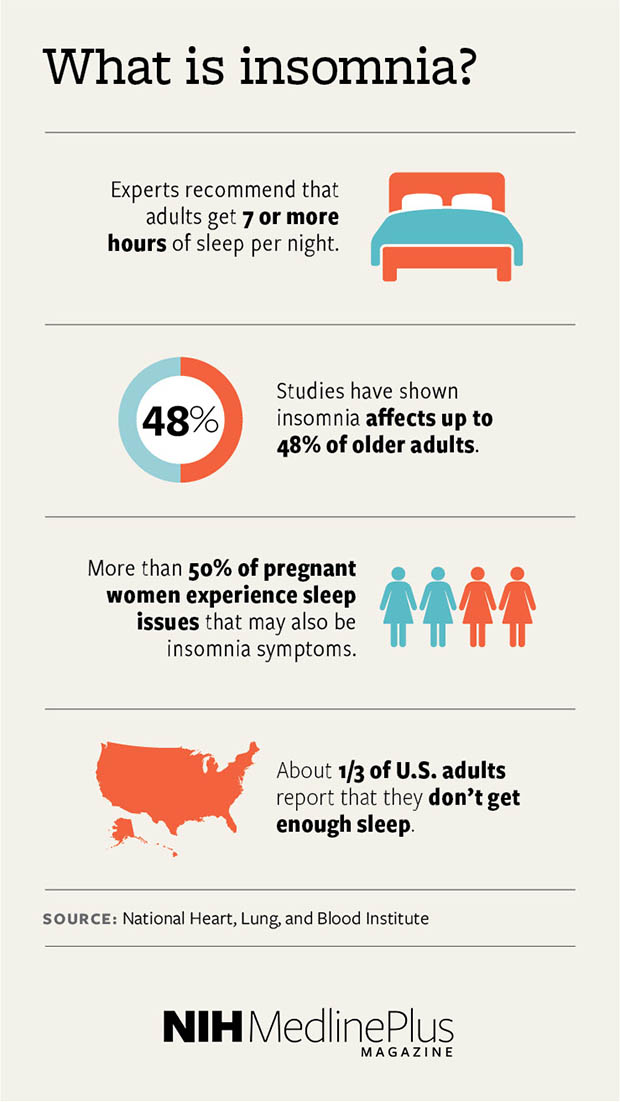


:max_bytes(150000):strip_icc()/__opt__aboutcom__coeus__resources__content_migration__mnn__images__2017__05__woman_insomnia_awake_bed-6f3b5469d12a4fc5af88c5cd447d2dd6.jpg)



